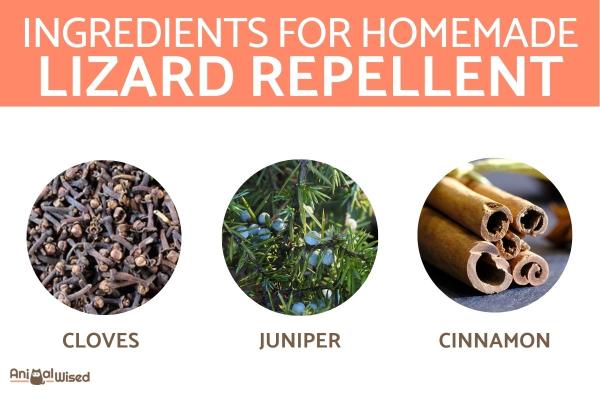
The word ‘lizard’ covers a great variety of reptile groups which can be found in different types of habitats, almost anywhere in the world. This is why these animals are often present in our homes. This is especially so if we have gardens, orchards or any place they can enjoy the right conditions for feeding and reproduction.
If you live somewhere with lizards, you must have seen these animals in your home and wondered “how can I get rid of these lizards?” Even though some are natural predators of insects, others may eat plants and cause other problems in your home. In this article from AnimalWised, we will cover some of the different ways to get rid of lizards without harming them.
How to chase lizards from the garden
If you want to know how to get rid of lizards from the house or garden, we need to know that killing them is not a good idea. Lizards can be pests, but they usually enter our home innocently and we should find a way to drive them away as safely as possible. These include:
- Put up a fence: you can enclose the garden with a fence which has holes too small for lizards to get through. This does not work with small lizards such as geckos which will likely get through most fencing.
- Eliminate any shelters: you can prevent these animals from having the ideal conditions by removing all garden objects that serve as shelters, such as boards, logs, large stones or any object where they can hide. Space should be kept as clear as possible.
- Eliminate any lizard prey: some lizards only eat insects and do not harm plants. However, you may prefer to limit any risk to your garden by indirectly controlling the situation. This means minimizing the presence of any animals that are prey for lizards, especially insects. If they lack food, they will be forced to look for another place to live. Further reading on natural insect control in gardens could be useful.
- Eggshells: keep lizards away from the garden by using eggshells. Place two freshly opened halves in different parts of the garden (replacing them when they dry out) and you will trick the lizards into thinking that there is a predator larger than them in the area.
- Traps for lizards: capture lizards with a humane trap such as a container holding tasty food to tempt them to climb in, but with tall smooth sides covered in a little edible vegetable oil so that the lizard is unable to grip and climb out. This way, once the lizard is stuck inside, you can transport and release them at another location.

Homemade lizard repellent for geckos
Geckos, belonging to the Gekkonidae family, are one species of lizard that commonly live alongside humans, especially in urban areas. Although they do not present any danger to us and are completely harmless (except for insects, on which they feed), people are often uncomfortable with the presence of these animals because of the squeaking sounds they make when communicating with each other.
If you prefer to keep these animals away from your home, you have the option of using a homemade repellent. All you need are small pieces of juniper, cinnamon sticks and cloves or spices. To make a homemade gecko repellent, follow these steps:
- Grind the ingredients as finely as possible.
- Place the ingredients in a small deep pot and cover with approx. 2 cups of water.
- Boil the mixture until you get a concentrated dark colored liquid.
- Pour the mixture into a spray bottle and spray any areas where you see lizards.
If you can, try to locate the openings through which these animals enter the home and spray them with lizard repellent. By doing so, you will discouarge them from using these entrances.

Using poison and insecticide on lizards
Nowadays, repellents and poisons for use on all kinds of animals are widely available, including those specifically for lizards. However, it is important to remember that the killing of lizards is a cruel and unnecessary act. Moreover, using these types of chemicals is not only harmful to these reptiles, but also to ourselves, our pets, small children and, above all, to the planet.
That is why we should avoid using insecticides and poisons and opt for more natural, non-toxic methods, as the idea is to scare these animals away without causing them any harm. We should also bear in mind that the majority of lizards will not want to hurt us. Our article on whether lizards in the home are dangerous will help you to better put this in perspective.
If you want to read similar articles to How to Get Rid of Lizards From the House, we recommend you visit our Facts about the animal kingdom category.
- Salvador, A. (2016). Common gecko - Tarentola mauritanica. Virtual Encyclopedia of Vertebrates. http://www.vertebradosibericos.org/